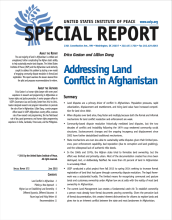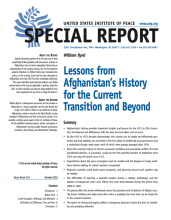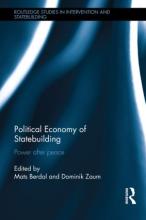/ library resources
Showing items 1 through 9 of 9.The longest-running barometer of Afghan opinion, the Survey of the Afghan People is a map of social change over time, presenting a clear picture of the gains and gaps that Afghans perceive in a rapidly t
In Afghanistan, insecurity over land and water rights hampers investments in food production and irrigation. In rural areas, customary tenure systems, partly based on religious law, are the most relevant but suffer from weak recognition and offer little protection to rights holders.
The Afghanistan land sector is plagued by a multitude of problems linked to weak governance, corruption and lack of capacity. There are competing claims to land, widespread conflicts, resultant landlessness and poverty.
The vast majority of land in Afghanistan is untitled and unregistered, further complicating the Afghan state’s ability to help sustainably resolve land disputes.
Despite interesting patterns from the past and at least superficially striking parallels with the present, policies on Afghanistan have not been adequately informed by an understanding of the country’s history.
The novel coronavirus disease (COVID-19) has put an additional strain on Afghanistan’s weak healthcare system.
ABSTRACTED FROM EXECUTIVE SUMMARY: In 2014, Afghanistan faced two major interconnected transformations. First was the withdrawal of most international troops.
ABSTRACED FROM EXECUTIVE SUMMARY:
This volume examines and evaluates the impact of international statebuilding interventions on the political economy of conflict-affected countries over the past 20 years. It focuses on countries that are emerging, or have recently emerged, from periods of war and protracted conflict.
Land Library Search
Through our robust search engine, you can search for any item of the over 73,000 highly curated resources in the Land Library.
If you would like to find an overview of what is possible, feel free to peruse the Search Guide.









